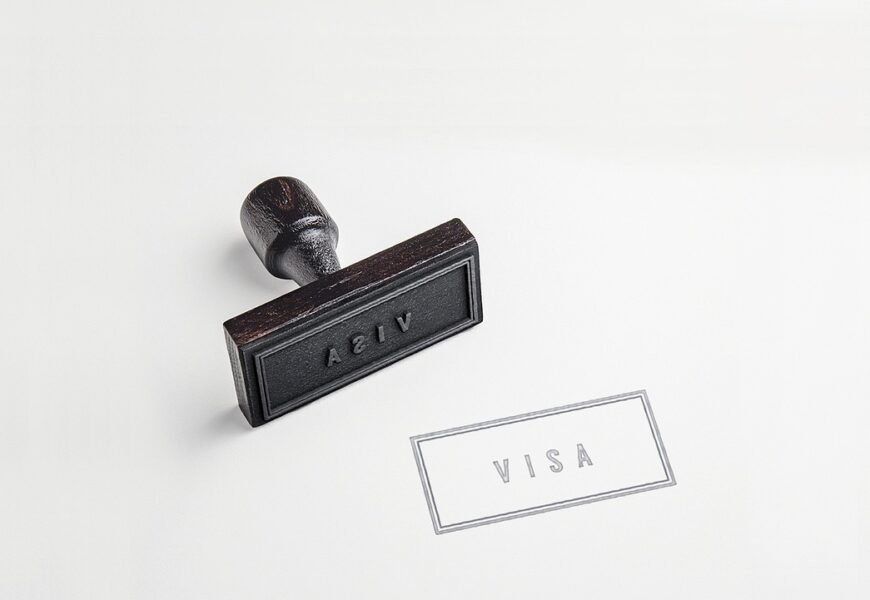Navigating the complex world of Thai visas can be a challenging experience for travelers, expatriates, and business professionals seeking to enter the Kingdom of Thailand. Understanding the intricate visa regulations is crucial for ensuring a smooth and legal entry into this vibrant Southeast Asian destination. Thailand offers multiple visa types catering to different purposes, from short-term tourism to long-term residency, each with its own specific requirements, application processes, and legal considerations.
With constantly evolving immigration policies and strict enforcement, travelers must stay informed about the latest visa regulations to avoid potential complications. This comprehensive guide will provide an in-depth exploration of Thailand’s visa system, offering detailed insights into the various visa categories, application procedures, documentation requirements, and essential tips for successful entry and stay in the country.
Tourist Visa Options for Thailand
Thailand offers several tourist visa options designed to accommodate different travel needs and durations. The most common tourist visas include the Visa Exemption, Visa on Arrival, and Tourist Visa. The Visa Exemption allows citizens from 64 countries, including the United States, United Kingdom, and most European nations, to enter Thailand without a pre-arranged visa for up to 30 days. This option is perfect for short-term travelers seeking a brief vacation or quick business trip.
The Visa on Arrival is available for specific nationalities and provides a 15-day entry permit, typically processed at international airports. For travelers planning longer stays, the Tourist Visa allows for a 60-day initial stay, with the possibility of a 30-day extension. Applicants must submit supporting documents, including a valid passport, proof of sufficient funds, return ticket, and completed application forms at a Thai embassy or consulate before traveling.
Non-Immigrant Visa Categories
Thailand’s non-immigrant visa categories cater to individuals with specific purposes for entering the country. The most prominent categories include the Business Visa (Non-Immigrant B), Education Visa (Non-Immigrant ED), and Retirement Visa (Non-Immigrant O). The Business Visa is essential for professionals seeking work opportunities, requiring sponsorship from a Thai company and extensive documentation proving employment qualifications.
The Education Visa is designed for students enrolled in recognized educational institutions, requiring proof of enrollment and academic program details. Retirement Visas are available for individuals aged 50 and above, demanding proof of financial stability through bank statements showing minimum monthly income or substantial savings. Each non-immigrant visa category has unique requirements, application processes, and renewal conditions that applicants must carefully navigate.
Long-Term Residency and Work Permits
Obtaining long-term residency in Thailand involves a complex process of securing appropriate visas and work permits. Foreign professionals must first obtain a Non-Immigrant B Visa through their employing company, which then sponsors a work permit from the Ministry of Labor. The process requires extensive documentation, including educational certificates, professional qualifications, and company registration documents.
Expatriates must undergo medical examinations, background checks, and provide comprehensive financial documentation. The work permit is typically valid for one year and must be renewed annually. Additionally, foreign workers must contribute to social security and meet specific tax obligations. Navigating these requirements demands careful planning, thorough documentation, and often professional assistance from immigration lawyers or specialized consultants.
Visa Extension and Conversion Strategies
Thailand offers various strategies for extending or converting existing visas, providing flexibility for travelers and expatriates. Tourist visas can be extended for an additional 30 days at local immigration offices, while non-immigrant visas may be renewed or converted depending on specific circumstances. The process requires timely application, comprehensive documentation, and compliance with immigration regulations.
Travelers must be aware of potential overstay penalties, which can result in significant fines and potential future entry restrictions. Each visa category has unique extension requirements, with some demanding proof of financial stability, health insurance, or specific professional qualifications. Consulting with immigration experts or carefully reviewing official guidelines can help individuals successfully navigate the complex visa extension landscape.
Special Visa Considerations and Emerging Policies
Recent global events have significantly impacted Thailand’s visa policies, introducing new regulations and special considerations. The Smart Visa program, targeting technology professionals and investors, offers streamlined entry and long-term stay options for qualified individuals. Additionally, Thailand has introduced special tourist visas and long-term resident visas to attract remote workers, digital nomads, and high-potential professionals.
Travelers must stay informed about evolving COVID-19 related requirements, including vaccination documentation, health insurance, and potential quarantine regulations. The Thai government continuously updates immigration policies, making it essential for potential visitors and expatriates to monitor official announcements and consult authorized sources for the most current information.
Navigating Thailand’s visa system requires careful preparation, thorough understanding of specific requirements, and proactive planning. By comprehensively researching visa options, preparing detailed documentation, and staying informed about current regulations, travelers can ensure a smooth and legally compliant entry into this beautiful and dynamic country. Whether you’re planning a short vacation, pursuing educational opportunities, or seeking long-term professional engagement, understanding Thailand’s visa landscape is crucial for a successful and enjoyable experience.









